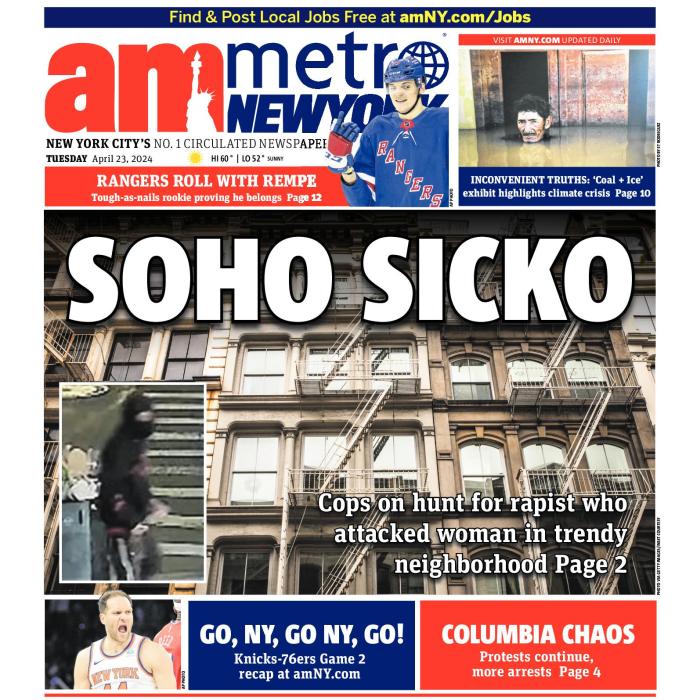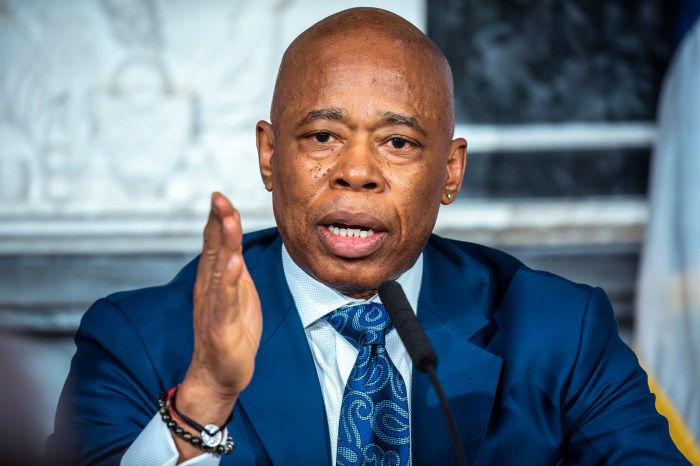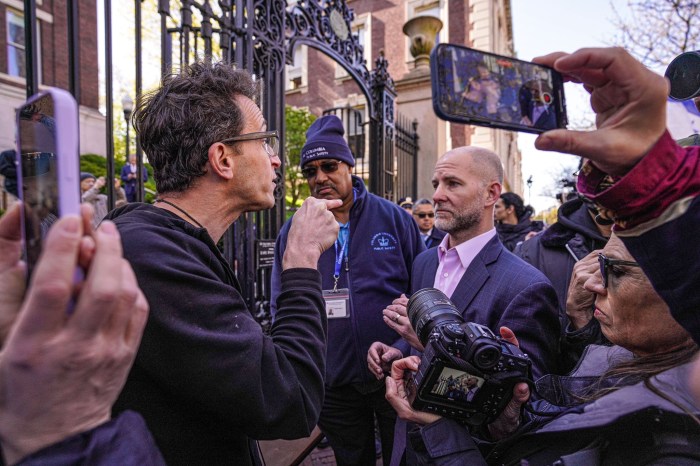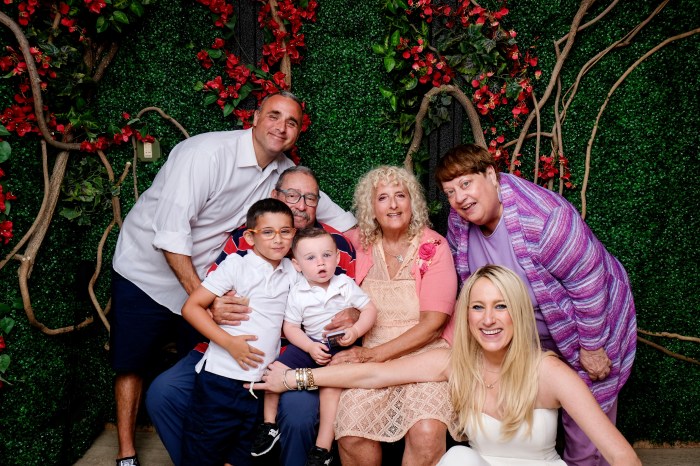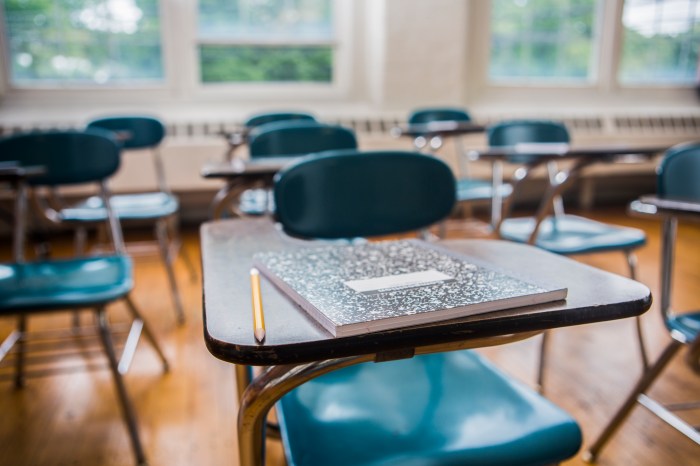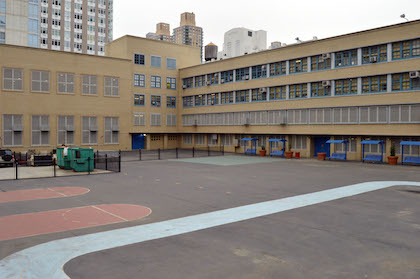
BY JACKSON CHEN | Two mothers’ efforts to create a Russian dual-language program on the Upper West Side are in need of more support to make their mission a reality.
Out of the estimated 180 dual-language programs throughout the city, options for the Russian language can only be found at P.S. 200 and I.S. 228 in Brooklyn. Finding no such option in Manhattan, Julia Stoyanovich and Olga Ilyashenko have enlisted the support of more than 90 families and their 150 or so kids to introduce a Russian dual-language program to the city’s School District 3 on the Upper West Side.
More than just a way to practice their language skills, the program would be a way for students of Russian ethnicity to retain their culture while English-speaking kids would be exposed to a different culture. In dual-language programs, the curriculum is taught in both English and a second language, with the goal of students learning to be bilingual.
According to Stoyanovich, one quirky bonus to understanding Russian is the ability to enjoy that culture’s sense of humor, which is usually lost in translation.
“Russian humor is essentially a very important way in which we express ourselves,” Stoyanovich said, pointing to a longstanding history of political jokes that poked fun at the country’s previous Soviet government. “It’s a way to make fun of life and resist the regime a little.”
But to make their bilingual Russian program into a reality, they have to identify a school and a principal who will undertake the program. According to Ilyashenko, the two have created a list of schools in their district but are still looking to settle on an interested location.
The two mothers explained that introducing a dual-language program in the city public school system is a daunting task. They believe they can enrich a school with their bilingual option, but are also concerned about finding an attractive school environment. Selling the concept to an interested principal involves locating a school that has adequate space, resources, and demand for a Russian dual-language initiative.
With so many criteria to meet, Stoyanovich and Ilyashenko are working through their list of possible host schools and have so far come up short. They’ve had their eyes on P.S. 191, P.S. 342, and P.S. 145, and spoke with several Community Education Council liaisons for those schools, who said they would discuss the proposal with their schools.
The two mothers’ efforts represent the third time parents in the district have tried launching a Russian dual-language program. In 2012, parents had chosen P.S. 75 as a location, but the Department of Education decided that was infeasible. Two years after that, another group of parents vied for the implementation of the program at P.S. 241, Manhattan’s STEM Institute.
Even if the parents win the school’s support, the decision is ultimately up to the Department of Education to institute the Russian program on the Upper West Side.
“Ultimately, every time, it seems there’s a lot of interest from the community because we are extremely underserved with no dual-language programs in Manhattan at all,” Stoyanovich said of the lack of Russian dual-language programs anywhere other than Brooklyn.
In creating a dual-language program, the DOE would seek Russian-speaking students who are looking to strengthen their proficiency in both Russian and English, but also a balance of English-speaking students who are interested in having Russian and English taught jointly in the classroom.
“The DOE is committed to expanding high quality and rigorous dual-language programs and works to support schools interested in opening programs where there is the student composition and qualified pedagogues,” said DOE’s Deputy Press Secretary, Yuridia Peña, in an email message. Peña said the department has been collaborating with community stakeholders in District 3 to find new ways to enrich their foreign language curriculum.
From the outreach the mothers have achieved so far, they said they’ve identified about a 20 percent share of kids whose families speak exclusively English at home.
From the perspective of Stoyanovich and Ilyashenko, a bilingual education would benefit all kids in the local school community, opening them up to opportunities to be part of what they termed a “multilingual revolution in the 21st century.”
Ilyashenko’s two sons, Julian and Lucas, are currently learning three languages — English, Russian, and French. She said it’s fascinating to see how their young brains switch from one language to another.
As for Stoyanovich, she and her husband made a conscious decision to speak only Russian in their home to help retain the language and part of their culture for their son.
“I really, truly believe that being multilingual or multicultural is essential in today’s world,” Stoyanovich said. “We live in a city that is multicultural, yet in this city, everyone only speaks one language.”
Among other parents supporting the cause, Natalia Kovtunova said a Russian dual-language program would give her four-year-old son, Maksim, the opportunity to continue a dual-language education program he’s already started. Currently bringing Maksim to the dual-language pre-kindergarten Bright Minds in Lower Manhattan, Kovtunova wants him to continue that study while attending school closer to home.
Signing onto the cause, she’s helping Stoyanovich and Ilyashenko with outreach in hopes that there are people who also join their efforts.
“We are like literally three people getting people to get committed,” Kovtunova said of their push. “There’s a ton of families who drag their kids two or three hours for express courses of Russian, so the community is there.”
Despite the DOE having the final say, Kovtunova said she felt the key challenges lie with more strongly unifying their own community. In their efforts at reaching out to organizations and parents who share their assessment of the value of dual Russian-English education, the parents hope they can garner enough momentum to make this third try at a program a success.
Julia Stoyanovich and Olga Ilyashenko, still looking for support in their efforts, can be reached at rdlp.nyc@gmail.com.
